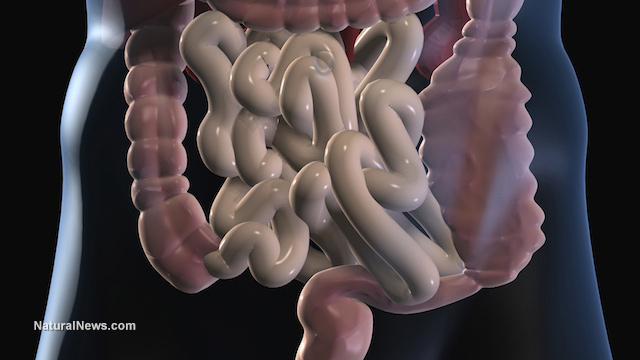How are your enzymes? Even healthy diets don’t work without them; try these 4 tips to jump-start better digestion
10/13/2017 / By Michelle Simmons

Have you ever wondered why you are not losing weight or why that bloated feeling just won’t go away no matter how much healthy food you eat? You probably need to get your enzymes working to enhance your digestion. Enzymes act as a catalyst in living organisms. In the human body, they play an essential role in our health by allowing the body to properly break down food and maximize all the nutrients from the foods we consume. The key to promoting digestive enzymes in the body lies not only on what you eat, but also on how you eat your food. Listed below are four tips to stimulate better digestion. (Related: 5 reasons your digestive system isn’t working properly.)
Four tips for a better digestive system
-
Drink a cup of tea instead of cold liquids during meals – Amy Shapiro, a dietitian and nutritionist, advised that cold drinks should be avoided when eating. When you start eating, digestive enzymes are released in the saliva. However, these enzymes will not be able to break down the food before going to the stomach if they mix with a lot of water or other drinks, especially cold ones. As a result, the digestive system will not be able to digest the food properly, which can lead to bloating. Shapiro, also a founder and director of Real Nutrition NYC said that this dilutes your digestive enzymes. Drinking room temperature or warm liquids will help the body digest food better by breaking down food quicker. Moreover, warm fluids aid in better bowel movements and inhibit bloating.
-
Do not eat foods that are difficult to digest – Two common foods that the digestive system cannot break down easily are lactose and kale, according to Shapiro. If eaten in large amounts, kale can be difficult to digest because it is packed with dietary fiber and certain sugars. Kale, being a leafy green vegetable, has a high insoluble fiber count that can be located in its walls. This means that it is not broken down in the gut and absorbed into the bloodstream. As a result, it just becomes waste. Moreover, the kind of sugar primarily found in most dairy products called lactose may be difficult to digest, especially for people whose small intestines do not produce lactase — the enzyme that breaks down lactose. Consuming foods like zero-calorie sweeteners that contain sugar alcohol are not exactly helpful to the digestive system as the body cannot digest it. Just because a food lacks calories does not necessarily mean it is healthy.
100% organic essential oil sets now available for your home and personal care, including Rosemary, Oregano, Eucalyptus, Tea Tree, Clary Sage and more, all 100% organic and laboratory tested for safety. A multitude of uses, from stress reduction to topical first aid. See the complete listing here, and help support this news site.
-
Do not eat too fast – Digestion starts in the mouth. Shapiro suggested that you chew your food properly and eat slower to avoid bloating and gas after eating. This is due to the fact that we tend to swallow excess air when eating and swallowing quickly. The saliva in our mouth has digestive enzymes that aid in breaking down the food before entering in the stomach. As a result, it will be easier for the stomach to digest the food and absorb all the nutrients it contains.
-
Eat foods that boost digestion – Eating foods that naturally have enzymes will make digestion easier. Shapiro mentioned that papaya and pineapple contain naturally occurring enzymes. She explained that these fruits help the digestive system break down the nutrients as they go through the stomach and the intestines. Other foods such as peppermint, ginger, fennel seed, and cumin are also good for digestion because they have anti-spasmodic properties, which relax the digestive system and calm any unwanted muscle spasms. Furthermore, they help promote a release of saliva, gastric juices, and bile to digest the proteins and other properties of the food.
Read more news like this at Detox.news.
Sources include:
Tagged Under: digestion, digestive enzymes, digestive health, digestive system, Enzymes, Healthy




















